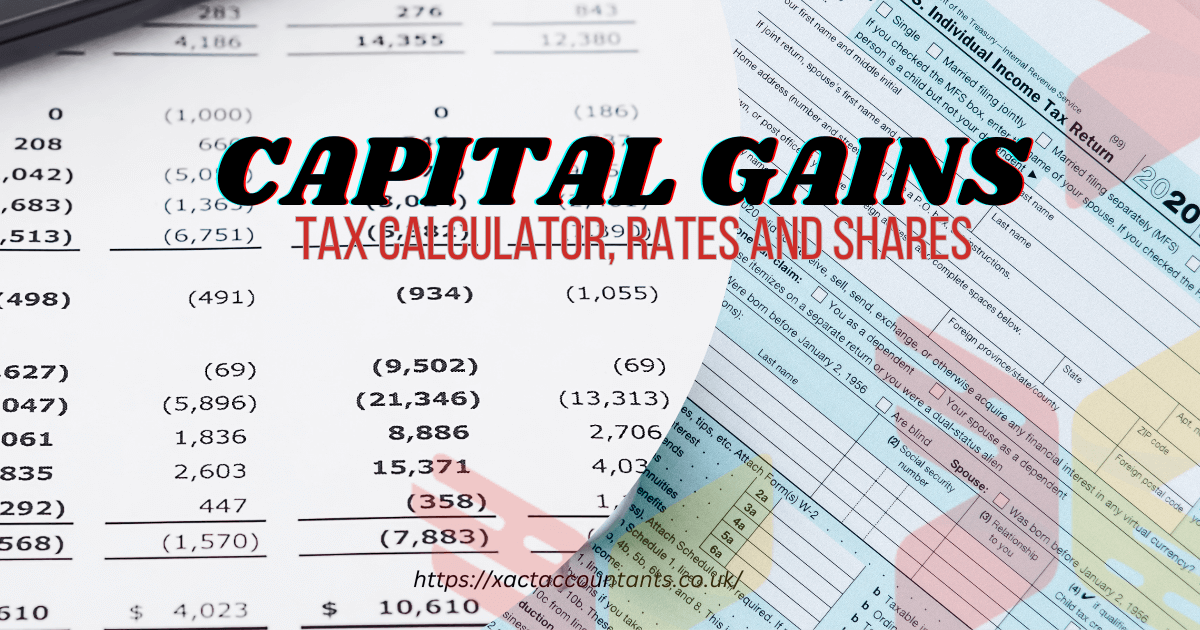Stock transfers or share transfers are a legal procedure in the UK that involves the transfer of ownership of shares in a company from one person to another. It is typically a matter of adhering to corporate governance rules, as well as ensuring accurate documentation and timely payment of taxes, such as stamp duty.
What Is a Share Transfer?
The legal process of share transfer involves changing the ownership of shares owned by a company from one entity or person to another. The process involves completing a transfer form and paying stamp duty when transferring more than £1,000, as well as updating the records of the statute. This includes the registration of members as well as the issuance of new share certificates. The accuracy of the documentation is essential to ensure conformity with the Companies Act 2006, support regulation transparency, and preserve the legal framework of ownership in a limited company.
Share transfer is the transfer of ownership rights, in the case of a limited company, between shareholders (the transferor) and an additional shareholder (the recipient). It is commonplace to use the terms “share transfer” and “stock transfer” interchangeably; however, “share” is more precise in the context of private limited companies. The transfer is made through a formal agreement, which is typically logged using the J30 form.
Differences Between Share Transfer and Share Allotment
Share transfers transfer existing shares. Share allotment involves the issuance of new shares to investors. It is a transfer that involves shareholders. The latter will increase the number of shares. Share allotments typically are a result of capital investment. The transfer of shares is typically a result of restructuring ownership and succession planning.
When and Why Do Share Transfers Happen?
Share transfers typically occur in the wake of major events, such as the retirement of a shareholder, succession planning, or the restructuring of a company. The actions need thorough supervision by a lawyer to prevent the possibility of future conflicts and to ensure integrity among shareholders. Suppose the transfer is triggered by an internal change in estate planning or strategic business decisions. In that case, fully understanding the motive behind every transfer will ensure legal execution and transparency in the documents.
Businesses must review their corporate governance policies, shareholder agreements, and tax implications before initiating the transfer process. An understanding of these aspects will help ensure compliance with regulations and accurate record-keeping.
Common Scenarios for Transferring Shares
- Business sale or purchase, or interest
- Change of ownership as a result of death or retirement
- Giving shares to relatives
- Inheritance or divorce settlements
- Corporate restructuring, shareholder exit, or company merger
The majority of these scenarios require taxes and legal procedures.
Legal and Business Motivations Behind Share Transfers
From a legal standpoint, share transfers are vital to ensure that corporate governance is accurate. From a business perspective, they help align goals and strategies, reward those involved, and simplify the ownership structure. When it comes to estate planning, share transfer ensures smooth transitions and the continuity of your estate plan.
Share Transfer Procedure
Transferring shares to the UK is a controlled, multiple-stage procedure that is regulated by law for companies, as well as HMRC rules. Each step should be carried out carefully to ensure the transfer and to safeguard the integrity of the company’s records. The process includes contractual agreements and documentation, as well as tax assessments and register updates. Failure to follow the procedure can result in financial penalties under the agreement between the shareholder and buyer.
Agreement Between Shareholder and Buyer
The process begins with a mutual agreement between the existing shareholder and the Buyer, which serves as the basis of the transaction. The agreement is typically codified in a document known as a Share Purchase Agreement (SPA), which legally records the transfer. The SPA defines the essential aspects, including the number and type of shares to be purchased, the sale price, as well as the warranties made by the Buyer, the conditions for completing the transaction, and all pertinent obligations. It is a contractual agreement that ensures each party is aware of and consents to their obligations.
Completing the Stock Transfer Form
The form for stock transfer (Form J30) has to be filled in using
- Name of the business
- The number of shares
- The consideration is paid
- The signature of the transferor on this form constitutes official proof of the transfer of ownership.
Paying Stamp Duty
Stamp Duty is applicable on share transfers when the amount of consideration exceeds £1,000, which is charged at a rate of 0.5%. The payment must be sent to HMRC within the first 30 days from the date of transfer. In the event of non-compliance, it may result in penalties or fees. Certain scenarios, including gifts, transfers between civil or married partners, or any transaction that is not subject to tax, could qualify as a full exemption. You must accurately analyze your transaction and meet all filing and payment requirements promptly.
Updating the Register of Members and Share Certificates
Once the share transfer form has been completed and any relevant stamp duty has been paid, the business must update its member register to reflect the newly elected shareholder. The update formally acknowledges the change of ownership under UK corporate law. Furthermore, a new share certificate will be issued to the person receiving the transfer, whereas the previously issued certificate will be cancelled and preserved. Maintaining timely and accurate records is crucial to ensure compliance with the law and for future reference, especially when audits or disputes arise over ownership.
Legal and Compliance Requirements
Share transfer laws are crucial for ensuring compliance with UK legal requirements for companies and guaranteeing that the company complies with relevant regulations. The rules ensure the transparency of shareholders, safeguard their interests, and help ensure the accuracy of corporate transaction records. Infractions can result in penalties, delays in transactions, or even disputes. Knowing the law reduces risks and helps you fulfil your company’s obligations under the law.
Articles of association govern how shares are transferred between the majority of UK firms. The internal regulations ensure the control of ownership and uniformity in modifications. These rules may include preemption rights, allowing current shareholders to purchase shares, or director consent provisions that restrict the transfer of shares to third parties. Compliance with these regulations ensures a legal transfer of shares.
Record-Keeping and Companies House
Private companies’ share transfers cannot be directly filed with Companies House but must be reported within the Confirmation Statement (CS01). A precise record-keeping of the register of transfer is legally required to ensure transparency and compliance with the Companies Act 2006. Inadequately updating records can lead to penalties or disputes.
Tax Implications of Share Transfers
Tax consequences for share transfers depend on the type of deal and the individuals involved. Transfers as gifts between relatives or to obtain monetary compensation could be subject to different taxes, including Stamp Duty, Capital Gains Tax (CGT), and Inheritance Tax (IHT). Knowing these requirements will ensure the proper filing and avoid any future obligations.
Stamp Duty Threshold and Exemptions
Stamp Duty is a tax that applies to shares whenever the amount of transactions exceeds £1,000. It is charged at a rate of 0.5%. Stamp Duty is a tax that must be paid, which is controlled by HMRC in the event of non-compliance; it could result in fines and charges of interest. There are, however, noteworthy exemptions that make it easier to avoid or reduce responsibility.
Transfers between spouses and civil partners, as well as transfers involving corporations not listed under certain relief plans, may be exempt. It’s essential to assess the purpose of the transfer properly, determine if the recipient is eligible for exemption, and then file within thirty days. An accurate assessment helps ensure a seamless process of transferring stocks and guards against tax-related penalties for a mistake.
Capital Gains Tax for Sellers
Capital Gains Tax (CGT) may apply if a sale of shares results in the seller earning an income. CGT is based on the profit made in the gap between the initial purchase price and the final value of shares. To lessen the burden of tax, Sellers may qualify to take advantage of tax reliefs, such as Business Asset Disposal Relief (BADR) and the Enterprise Investment Scheme (EIS).
These benefits can substantially lower the actual CGT percentage. An accurate valuation, correct documentation, and proactive tax planning are essential. Understanding CGT obligations is crucial for any person transferring shares as part of a business’s exit plan.
If shares are given as an inheritance or gift, there are different tax regulations in place compared to a regular stock transfer. The transactions may be subject to Inheritance Tax (IHT) based on the amount of shares transferred, as well as the relationship between the person transferring and the transferee. ]
Transferring Shares in a Private Limited Company vs a Public Company
Transfers of shares for private limited companies are subject to stricter internal checks than those of the public sector. For public companies, shares typically trade in the market, allowing for free transfers without requiring internal approvals. Private businesses can impose limits via Articles of Association or shareholder agreements.
They can help maintain the integrity of ownership within trusted circles, as well as prevent unintentional controls. Being aware of the regulatory framework is crucial to ensure legitimate transfers while also protecting the interests of shareholders. The best method for transferring will depend on the nature of the business, its size, and objectives.
| Aspect | Private Limited Company | Public Company |
|---|---|---|
| Share Transfer Process | Approval from shareholders or directors required. | Can be traded freely on the stock exchange. |
| Approval Requirement | Yes, board approval often needed. | No approval required. |
| Transfer Restrictions | Transfers may be restricted by company’s rules. | No restrictions on transferability. |
| Disclosure Requirements | Minimal internal disclosure. | Extensive public disclosure. |
| Transferability | Less liquid, harder to transfer. | Highly liquid, easily transferable. |
| Regulatory Oversight | Low regulatory intervention. | High regulatory oversight. |
Conclusion
Share transfers are a key legal procedure in the UK, essential for maintaining accurate ownership records and ensuring corporate governance compliance. The process involves a series of steps, including the completion of transfer forms, payment of stamp duty (where applicable), and updating member registers. While share transfers in private limited companies are subject to stricter internal governance, public companies allow for more freedom in the transfer of shares through the stock market.
















